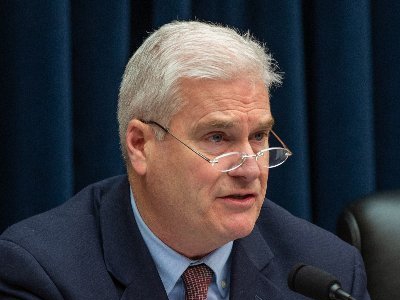Explore the GOP’s tumultuous quest for a House speaker as Tom Emmer withdraws amidst internal party clashes. Trump’s objection adds to the chaos, leaving Republicans in disarray. Dive into the complexities of selecting a unifying leader and the broader implications for U.S. Congress functionality. Get insights into the challenges hindering routine business and the looming government shutdown risk. Follow the unfolding narrative of conservatives and election deniers vying for the speaker position, reflecting the internal struggles shaping Republican dynamics.

GOP Whip Tom Emmer’s quest for the House speaker position abruptly came to an end after winning the internal party nomination, only to withdraw when it became evident that he lacked the necessary support from GOP colleagues for the role. Donald Trump’s objection to Emmer’s nomination and resistance from hardliners in the House played pivotal roles in this decision, marking Emmer as the third Republican falling short in their bid for leadership. This development further exacerbates the chaos within the Republican Party, which has been grappling with internal conflicts since the removal of Kevin McCarthy at the beginning of the month.
Emmer’s swift departure unfolded after he secured the majority vote during private internal balloting. However, his victory was short-lived as Trump, a dominant force within the party, voiced his disapproval, citing Emmer’s perceived deviation from the “Make America Great Again” (MAGA) ethos. This internal strife, heightened by Trump’s influence, underscores the challenges faced by Republicans in selecting a unifying leader who can guide the GOP majority and restore functionality to the U.S. Congress.
Shocking Confessions: Trump Attorney Jenna Ellis Spills the Beans in Georgia Election Case!
With Emmer out of the race, attention quickly shifted to Rep. Mike Johnson of Louisiana, a lower-ranking member of House GOP leadership and a legal expert in constitutional matters. Despite being the second-highest vote-getter on Tuesday, the party remains ensnared in internal disputes, reminiscent of the Trump-Emmer feud that dates back to January. As Republicans return behind closed doors to deliberate on a new leader, the absence of an obvious choice and the rejection of top replacements like Majority Leader Steve Scalise and Trump-backed Judiciary Chairman Jim Jordan add to the complexity of the situation.
The article sheds light on the broader implications of the GOP’s internal struggles. With Republicans in control of the House by a slim margin (221-212 over Democrats), any nominee must navigate the delicate balance of securing support within the party. The ongoing turmoil impedes routine business, including the pressing need to pass funding legislation to avert a government shutdown by the looming November 17 deadline. Additionally, President Joe Biden’s call for $105 billion in aid faces uncertainty amid the internal discord.
Kremlin Denies Reports of Putin’s Cardiac Arrest and Body Double Speculation
The individuals vying for the speaker position, largely comprised of conservatives and election deniers, represent a faction within the party that either voted against certifying the 2020 election results or joined subsequent legal challenges. The dynamics of this internal struggle are further complicated by conflicting views on issues such as federal spending levels, with some Republicans seeking steeper cuts and pursuing a different fiscal direction.
In conclusion, the article captures the ongoing turbulence within the GOP, offering insights into the challenges of selecting a new House speaker and the broader consequences for the party’s ability to govern effectively.
